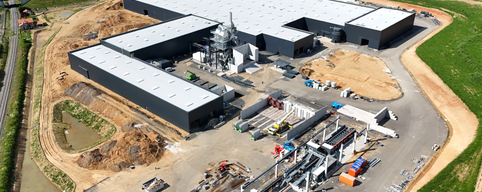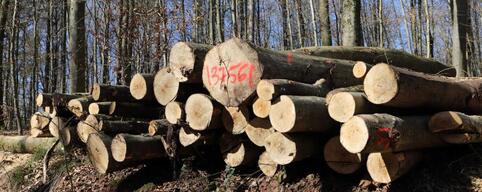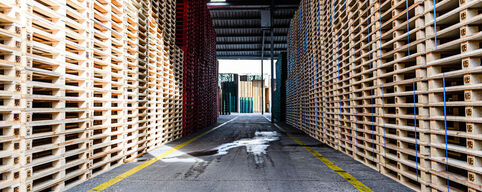

An alarming problem is growing in France: the theft of wood from private forests. This phenomenon, which has been intensifying for several years, fuels an international timber trade with serious consequences for the environment and the local economy. The situation has become sufficiently worrying to mobilize the Federation of Private Forestry Unions of France (Fransylva), which is calling for concrete action from the government.
Tree theft, particularly in private forests, is now common in France. This phenomenon, which is largely unknown to the general public, has a significant impact on the finances of forest owners. In fact, around 75% of French forests are privately owned. These owners often find themselves powerless in the face of organized poaching networks. The figures bear witness to a clearly deteriorating situation, revealing a significant increase in thefts in recent years.
These acts of illegal deforestation not only disrupt the local economy, but also result in considerable losses for the owners. They see their natural heritage plundered, threatening their livelihood. In addition to the immediate financial consequences, timber theft undermines sustainable forest management. The stakes are all the more crucial as effective management of private forests is fundamental to the preservation of biodiversity and the fight against climate change.
Furthermore, international timber trafficking attracts often well-organized networks, which take advantage of the low level of surveillance and the large expanses of forest to perpetrate their crimes. Many French regions, once spared, are now considered at risk. This phenomenon reveals the limitations of the current surveillance system and raises the need for a review of public policies concerning the protection of private forests.
Faced with this critical situation, Fransylva is issuing a call to action. The federation is urging the government to take measures to strengthen the security and surveillance of private forests. The organization emphasizes the need to revise legislation and increase control mechanisms to deter thieves and protect owners.
Among the measures envisaged, the implementation of surveillance technologies, the improvement of wood traceability regulations and the organization of intensified patrols are likely to limit the impact of this scourge.
Beyond legislative actions, Fransylva also encourages the development of awareness-raising campaigns to inform and mobilize the population on the importance of preserving forests. Support and solidarity among forest owners are essential to build an effective and responsive vigilance network.
At the same time, it is imperative to develop educational programs aimed at emphasizing the importance of sustainable forest management, in order to guarantee their conservation for future generations. Forest owners can thus be encouraged to help each other and to preserve this common natural heritage together.
In short, the theft of wood in France is more than just an economic problem; it reflects a progressive erosion of the forest and natural heritage. It is therefore crucial to take action by strengthening both the means of prevention and sanctions to ensure the sustainability of this priceless asset.
These initiatives, which reaffirm the commitment of Fransylva and that of private forest owners, are essential to counter this scourge. Collective mobilization and strong political will will be necessary to protect French forests and their guardians from this rapidly expanding illegal traffic.



